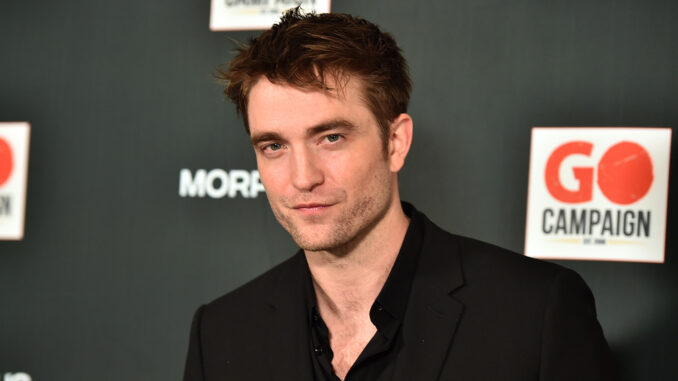
From Sparkling Veil to Gritty Canvas: Robert Pattinson's Hollywood Metamorphosis
The image is indelible: a pale, brooding vampire, his skin shimmering like a disco ball under the sun, caught in the throes of an eternal, angsty love. For millions, Robert Pattinson was Edward Cullen, the perpetually tortured heartthrob of the Twilight saga. This role, a cultural phenomenon of unprecedented scale, catapulted him into a stratosphere of global teen idol worship, but also encased him in a golden cage of typecasting. Yet, from the suffocating glare of that spotlight, Pattinson quietly, deliberately, began to shed the sparkling veil, embarking on a remarkable artistic journey that would redefine his public persona and solidify his status as a serious, versatile Hollywood star. His is a tale of calculated rebellion, artistic integrity, and the audacious pursuit of an authentic craft beyond the clamor of a manufactured image.
The initial aftermath of Twilight was a maelstrom. Pattinson found himself an unwilling participant in the frenzied machinery of celebrity, his every move scrutinized, his identity conflated with that of his most famous character. The public struggled to see beyond the fangs and the angst, trapping him in the very role that had granted him immense fame. This period was crucial; instead of capitalizing on his teen idol status with more predictable blockbusters, Pattinson chose a different, riskier path. He deliberately pivoted towards the independent film scene, seeking out challenging, often obscure roles with visionary directors known for their unconventional narratives. This was his chrysalis phase, a conscious retreat from the mainstream to the gritty, unglamorous proving ground of arthouse cinema.
His early forays into this new terrain were met with a mixture of curiosity and skepticism. David Cronenberg's Cosmopolis (2012) was a stark, disorienting departure, casting Pattinson as a billionaire trapped in a limousine, uttering dense, philosophical dialogue. It was a film designed to provoke, and Pattinson’s icy, detached performance signaled his intent to break free. This was followed by roles in films like The Rover (2014), a bleak, post-apocalyptic drama where he played a simple-minded accomplice with raw, almost animalistic intensity, and Werner Herzog's Queen of the Desert (2015). These weren't easy watches, nor were they commercially driven. They were, instead, a public declaration: Pattinson was not content to merely be famous; he sought to be good.
The turning point, the definitive shedding of the shimmering skin, arrived with Josh and Benny Safdie’s Good Time (2017). Here, Pattinson was utterly unrecognizable. As Connie Nikas, a desperate, low-level criminal navigating the neon-lit underbelly of New York City over one frantic night, he delivered a raw, pulsating performance. With bleached hair, a frantic energy, and eyes that bled authenticity, he was a revelation. Critics, who had previously dismissed him as a pretty face, were stunned. The film was a visceral assault, and Pattinson was its frantic, beating heart. It was a performance fueled by desperation and a misguided love, a million miles away from the composed, ethereal Edward. Good Time wasn't just a career pivot; it was an artistic coronation, proving Pattinson possessed a profound depth and a fearless commitment to his craft.
This newfound critical acclaim propelled him further into the embrace of auteur directors. In Claire Denis's haunting sci-fi odyssey High Life (2018), he explored themes of isolation and desire in the depths of space, showcasing a quiet, melancholic power. But it was Robert Eggers's black-and-white, claustrophobic psychological thriller The Lighthouse (2019) that truly solidified his artistic dominance. Opposite a ferocious Willem Dafoe, Pattinson delivered a physically demanding, often grotesque, and utterly captivating performance as a young lighthouse keeper driven to madness. His descent into psychosis was spellbinding, proving his mastery of physical comedy, dramatic intensity, and the ability to command the screen with little more than his eyes. The sparkling vampire was dead; in his place stood an actor willing to explore the darkest corners of the human psyche, covered in grime and existential dread.
By the time Christopher Nolan cast him in the mind-bending blockbuster Tenet (2020), Pattinson’s return to the mainstream was on his own terms. He was no longer a teen idol in need of validation; he was a respected actor bringing his hard-earned gravitas to a complex, high-stakes role. And then came The Batman (2022), the ultimate full circle. The initial casting announcement was met with predictable internet outrage, a residual echo of the Twilight prejudice. But Pattinson, having forged his skills in the fires of indie cinema, brought an entirely new dimension to the Caped Crusader: a haunted, melancholic, and deeply human Bruce Wayne, still grappling with his trauma, more detective than superhero. His performance silenced the doubters, proving that his artistic choices had not only broadened his range but also deepened his understanding of character, allowing him to imbue an iconic role with a nuanced, internal struggle rarely seen.
Robert Pattinson’s journey from the fantastical realms of Forks to the grim streets of Gotham is more than just a successful career trajectory; it is an illustrative essay in artistic reinvention. It demonstrates the profound courage required to defy the expectations of millions, to shed a globally recognized image in pursuit of genuine craft. From the shimmering, almost plastic perfection of Edward Cullen to the sweat-soaked, morally ambiguous anti-heroes of the arthouse, and finally to the brooding, psychologically complex figures of modern blockbusters, Pattinson has painstakingly carved out a space for himself as one of Hollywood's most compelling and respected actors. He transcended the glittering cage, proving that true stardom is not merely about fame, but about the relentless, authentic pursuit of one's artistic truth.
